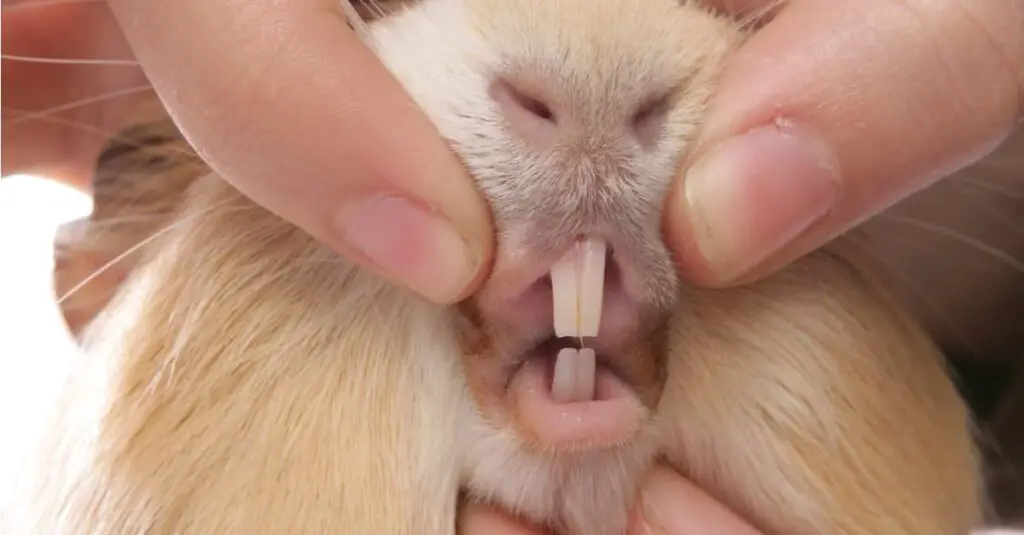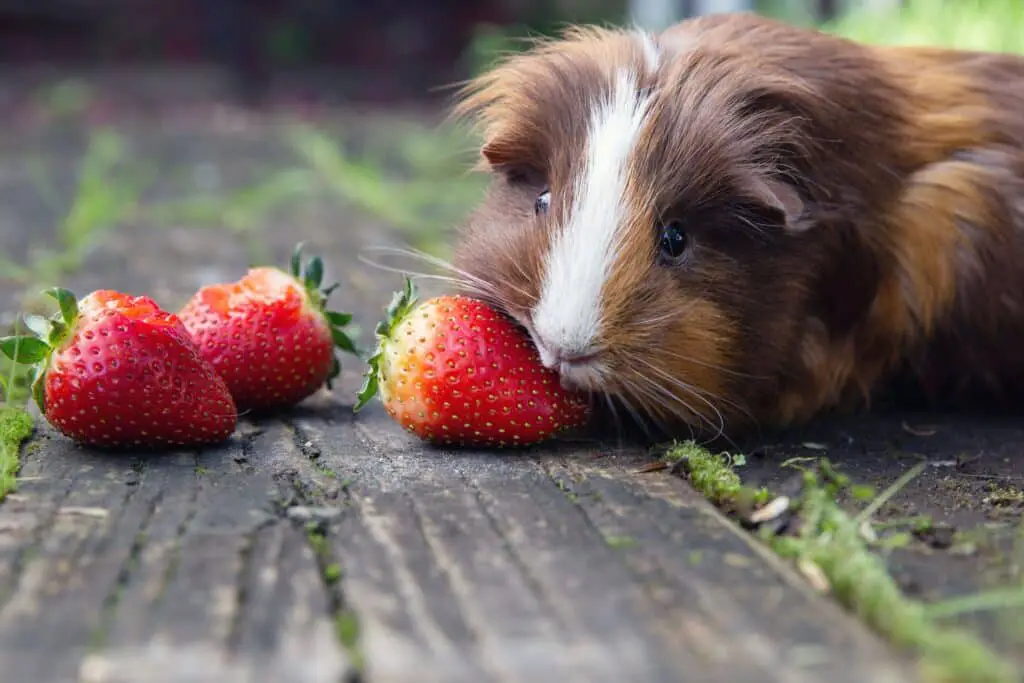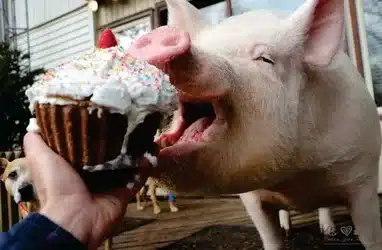Introduction
Do Guinea Pigs Bite Hurt: The endearing and gentle nature of guinea pigs has made them a popular choice as pets for families and individuals alike. These small, furry creatures are known for their sociable personalities and charming squeaks. However, like any pet, guinea pigs can display a range of behaviors, and one question that often arises among prospective and current guinea toes pig owners is whether guinea pigs bite and if it hurts when they do.
Guinea pigs are generally considered to be one of the less aggressive small pets, and biting is not a common behavior for them. In fact, their primary form of communication and defense is through vocalizations, such as chirps and purrs, as well as body language like raising their fur or chattering their teeth.
It’s essential to understand that while guinea pigs are usually gentle, there are instances when they may bite, and the intensity of the bite can vary. Will explore the circumstances in which guinea pigs may bite, the reasons behind it, and whether their bites typically cause harm.

What happens if a guinea pig bites you?
“Guinea pigs generally are not biters,” Smotherman told The Dodo. “There are always exceptions, though.” If you ever do get bit by a guinea pig, it’s very unlikely to cause any harm — their bites are more like a nibble than anything else and won’t break the skin.
When a guinea pig bites a person, the immediate consequences are typically not severe. Guinea pig bites are seldom painful, and their tiny teeth are not designed for inflicting harm. However, it’s essential to understand the potential risks and steps to take if a guinea pig bites you.
Firstly, guinea pig bites are usually more of a nibble or a nip rather than a full-fledged bite. These nibbles may be a form of communication or exploration for the guinea pig rather than an aggressive act. While the initial sensation may be a mild pinch or discomfort, guinea pig bites rarely break the skin, and any resulting marks are generally superficial.
It’s crucial to clean the area thoroughly if a guinea pig bite breaks the skin to prevent infection. Guinea pigs can carry bacteria in their mouths, and any open wound should be disinfected promptly. Additionally, individuals with compromised immune systems or allergies to guinea pig saliva should be especially cautious and seek medical attention if bitten. To minimize the likelihood of guinea pig bites, it’s essential to handle these pets gently, respect their boundaries, and provide proper socialization and training to reduce stress and fear in the animal.
Do guinea pigs bite really hard?
It’s not aggression, just curiosity. Guinea pigs only use their teeth aggressively if they feel under threat – they are their only means of defence. If your pet bites you for real, it’s because they’re afraid of you.
Guinea pigs, known for their gentle and sociable nature, are not typically considered aggressive animals. In general, they do not possess a strong bite force, and their bites are usually mild and non-threatening. However, whether a guinea pig’s bite feels hard or not can vary depending on several factors, including the individual guinea pig’s temperament, the circumstances leading to the bite, and the sensitivity of the person being bitten.
The force of a guinea pig’s bite is usually quite mild and rarely causes significant harm. Guinea pigs have small mouths and relatively small teeth, which are designed for grazing on grass and vegetables. Their teeth are not adapted for powerful biting like those of carnivorous animals or rodents that need to gnaw through hard substances. Consequently, when a guinea pig bites, it’s often more of a nibble or a pinch rather than a truly hard bite. However, it’s essential to keep in mind that pain perception can vary from person to person, and what one individual may describe as a gentle nibble might feel different to someone else, especially if the guinea pig is agitated or frightened.
A form of communication or self-defense, rather than aggression. They may bite if they feel threatened, scared, or provoked. To avoid being bitten, it’s crucial to handle your guinea pig gently and with care, especially when they are getting used to human interaction. A stress-free environment and proper socialization can help minimize the likelihood of guinea pigs feeling the need to bite. If a guinea pig does bite, it is typically a warning sign, and understanding their body language and cues can help prevent such situations in the first place.
Why do guinea pigs bite hard?
If your guinea pig feels scared, is startled, or is being bullied by other guinea pigs, it may react by biting you or another guinea pig. This reaction is natural and is an attempt to protect itself or stop whatever is scaring it from happening.
Guinea pigs are generally known for their gentle and docile nature, making them popular pets for families and individuals alike. However, there may be instances when a guinea pig bites, and in some cases, they can deliver surprisingly hard bites. Understanding why guinea pigs may resort to such behavior is essential for their well-being and for maintaining a harmonious relationship with these small rodents.
One primary reason guinea pigs may bite hard is fear or perceived threat. Guinea pigs are prey animals in the wild, and their instinctual response to potential danger is to defend themselves. If a guinea pig feels cornered, stressed, or anxious, it may resort to biting as a means of self-defense. This is particularly true if the guinea pig has not been properly socialized or handled gently from a young age. To avoid hard bites from fearful guinea pigs, it’s crucial to approach them calmly, avoid sudden movements, and create a secure and stress-free environment for them.
Another reason for hard biting in guinea pigs can be related to pain or discomfort. When guinea pigs are in pain or suffering from an illness or injury, they may become more irritable and prone to biting. The hard bite, in this case, could be an expression of their distress. Regular health check-ups, a clean and comfortable living environment, and a balanced diet can help minimize the chances of guinea pigs experiencing pain or discomfort that might lead to aggressive behavior.
Are guinea pigs teeth strong?
Guinea pig long teeth are strong, so the best thing to trim them naturally are the other guinea pig teeth. In our homes, we can offer good-quality hay and grass to keep our piggies’ teeth healthy. Around 70 to 80% of your sweet floofers’ diet should be hay, so finding the right hay is oh so important!
Firstly, guinea pigs are equipped with continuously growing teeth, a trait shared with many rodents. This means that their teeth never stop growing throughout their lifetime. To keep their dental health in check, guinea pigs need to chew regularly. Their front teeth, the incisors, are designed for cutting and nibbling on various types of vegetation, which form the bulk of their diet.
These incisors are small but sturdy, capable of dealing with the fibrous plant matter that makes up their primary food source. However, while their incisors are strong, they are not entirely immune to dental problems. Malocclusion, a condition where the incisors do not align properly, can occur in guinea pigs, leading to overgrowth and potentially causing discomfort and eating difficulties.
Secondly, guinea pigs possess molars and premolars, located in the back of their mouths. These cheek teeth are responsible for grinding and processing the tough plant material they consume. Unlike the incisors, the molars are not continuously growing, but they are still quite robust. They need to be strong to handle the repetitive grinding motion required to break down the fibrous components of their diet.
However, this strength does not make them immune to dental issues either. Dental problems, such as uneven wear, spurs, or overgrowth, can affect the molars and cause pain and difficulties in eating. Regular dental check-ups by a veterinarian are essential to ensure that these teeth stay healthy.
Lastly, the strength of guinea pigs’ teeth is closely tied to their diet. A diet that consists primarily of hay, fresh vegetables, and high-quality guinea pig pellets helps maintain dental health. These foods require significant chewing, which naturally wears down the teeth and prevents overgrowth. Furthermore, the abrasive texture of hay aids in keeping the teeth’s surfaces smooth and free from irregularities. Ensuring that your guinea pig has access to these dietary elements is crucial for maintaining the strength and health of their teeth.
How not to hold a guinea pig?
Avoid holding your guinea pig so that your hands are only holding them under their front arms. This position does not have any support for the bottoms which can make them incredibly uncomfortable and stressed.
Handling a guinea pig is a delicate task that requires care and attention. These small, gentle creatures are popular pets known for their docile nature and charming personalities. However, improper handling can lead to stress, injury, or even health issues for your guinea pig. We will explore the dos and don’ts of holding a guinea pig to ensure their well-being and your bonding experience.
It’s crucial to understand how not to hold a guinea pig. One of the most common mistakes is grabbing them from above or roughly. Guinea pigs are prey animals by nature, and they have a strong instinct to protect themselves from perceived threats.
Approaching them too quickly or handling them with force can trigger their flight-or-fight response, causing immense stress. It’s essential to approach your guinea pig gently and with patience. Never pick them up by their fur, ears, or tail, as this can be painful and frightening for them. Always use both hands to support their body properly.
Another common mistake to avoid is holding a guinea pig too loosely. While they are small, guinea pigs are surprisingly agile and can wiggle or jump out of your hands if not properly secured. It’s vital to provide a safe and secure grip to prevent any accidental falls or injuries. Cup your hands under their body, with one hand supporting their hindquarters and the other their chest and front legs. This way, you distribute their weight evenly, reducing the risk of dropping them or causing them to panic.
Additionally, never underestimate the importance of proper posture while holding a guinea pig. Bending over too far or holding them too high from the ground can make them feel vulnerable and anxious. Instead, sit or kneel on the floor to bring yourself closer to their level. This not only makes the experience less intimidating for your pet but also allows you to maintain better control and stability while holding them.
Why is my guinea pig aggressively biting the cage?
Cage Biting Can Be a Sign of Pain or Illness
Often, this behavior is accompanied by subtle symptoms such as puffy fur or hiding more than usual. If your guinea pig starts biting the cage bars out of the blue when they don’t usually do so, this is a sure sign of an underlying health problem.
Guinea pigs are generally gentle and sociable creatures, but there are times when they may exhibit behaviors that appear aggressive, such as biting the cage bars. Understanding why a guinea pig might engage in this behavior is crucial for their well-being. There are several potential reasons behind this seemingly aggressive act, and it’s essential for guinea pig owners to identify and address the underlying causes to ensure their pets remain happy and healthy.
Firstly, one common reason for a guinea pig to bite the cage bars is boredom and frustration. Guinea pigs are intelligent and curious animals that require mental stimulation and physical activity. When they are not provided with an enriching environment, they can become bored and restless, leading to behaviors like cage biting.
In such cases, it’s essential to ensure that your guinea pig’s enclosure is adequately sized, contains toys and activities for mental stimulation, and offers opportunities for exercise, such as tunnels and playpens. By providing a more engaging environment, you can help alleviate their boredom and reduce cage biting.
Another potential reason for cage biting in guinea pigs is stress or anxiety. Guinea pigs are sensitive creatures that can easily become stressed by changes in their environment, loud noises, the presence of predators (real or perceived), or a lack of social interaction. If your guinea pig feels threatened or anxious, it may resort to cage biting as a coping mechanism.
To address this issue, it’s crucial to create a calm and secure living space for your pet. Ensure they have a quiet, sheltered area within their enclosure where they can retreat to when feeling stressed. Additionally, maintaining a consistent routine and providing them with companionship in the form of another guinea pig can help reduce anxiety-related behaviors like cage biting.
Lastly, medical issues could also be a potential cause of cage biting in guinea pigs. Dental problems, pain, or discomfort can lead to unusual behaviors, including gnawing on the cage bars. Guinea pigs have continuously growing teeth, and if their dental health is compromised, it can cause them pain and difficulty eating. Regular veterinary check-ups are essential to ensure your guinea pig’s overall health and to address any potential medical issues promptly.
How do you calm an angry guinea pig?
Provide hideouts and shelters for your guinea pig
Make sure your piggies have plenty of hideouts in their hutch where they can take cover. This will help keep them calm when they feel threatened or scared. As social as guinea pigs are, they often need some time away from their hutch-mates and humans.
Calmly addressing an angry guinea pig requires a combination of patience, understanding, and gentle techniques. Guinea pigs, although generally known for their docile nature, can sometimes become agitated or frightened, and it’s important for their well-being and your safety to know how to soothe them effectively.
Firstly, it’s crucial to identify the cause of your guinea pig’s anger or distress. Common triggers include sudden loud noises, unfamiliar environments, or rough handling. Once you’ve pinpointed the source of their agitation, take steps to eliminate or reduce it. For instance, if a loud noise startled your guinea pig, move them to a quieter area or cover their cage with a soft cloth to muffle the sounds. Preventing stressors can often prevent anger from escalating.
Secondly, when you approach an angry guinea pig, it’s essential to move slowly and speak to them in a calm, soothing tone. Avoid making sudden movements or loud noises that might startle them further. Extend your hand towards them with a gentle, open palm and allow them to sniff and investigate at their own pace. Never try to grab or forcibly restrain an angry guinea pig, as this can intensify their fear or aggression.
Finally, offering a favorite treat can be a useful tool for calming an upset guinea pig. Guinea pigs are food-motivated animals, and by offering a small piece of their favorite fruit or vegetable, you can often redirect their focus and gradually build trust. Patience is key here; it may take some time for your guinea pig to accept the treat from your hand. Keep offering it while maintaining a gentle and non-threatening presence.
Why do guinea pigs lick you?
If your guinea pig starts licking you, this could be a very good sign that he or she likes you. It’s generally regarded as a very affectionate gesture. In the same way that they show affection through grooming one another, they could well be attempting to groom you to!
Guinea pigs, those charming and sociable rodents that often become beloved pets, have a peculiar habit that can leave their owners both puzzled and delighted: they lick you. This adorable behavior can be a source of curiosity, but understanding why guinea pigs lick their human companions sheds light on their complex social and communicative nature.
Firstly, it’s essential to recognize that guinea pigs are highly social animals with a strong sense of community. In the wild, they live in herds, and grooming is a common social behavior within these groups. When guinea pigs lick you, they are essentially extending this natural social behavior to their human family members. It’s a sign of affection and bonding. This gentle licking is their way of showing that they feel comfortable and safe in your presence, akin to how they might groom and care for fellow guinea pigs in their herd.
Secondly, guinea pigs have a heightened sense of smell and taste, which plays a significant role in their interactions. When they lick you, they are not just doing it randomly; they are exploring and recognizing your scent and taste. This is an essential part of how they perceive and recognize their environment and those who inhabit it. By licking your skin, they become familiar with your unique scent, strengthening the bond between you and creating a sense of trust.
Lastly, guinea pigs may also lick you as a form of communication. They use their tongues to convey various messages to their owners and fellow guinea pigs. For instance, if they lick you while you are petting them, it could be their way of expressing contentment and enjoyment. On the other hand, if a guinea pig licks you during handling or while you’re holding a treat, it might be a signal of anticipation or excitement, indicating their desire for more attention or a tasty morsel.

Conclusion
Guinea pigs are generally gentle and docile animals that are not known for aggressive behavior or inflicting painful bites. While they may nibble or nip at times, it is usually a form of communication or exploration rather than an act of aggression. The bites of guinea pigs are typically not painful, and they have small, blunt teeth that are not designed for causing harm. However, it is essential for guinea pig owners to handle their pets gently and with care to minimize the risk of any accidental nips or bites.
Understanding guinea pig behavior and providing them with proper socialization and a comfortable environment can further reduce the likelihood of biting incidents. It’s crucial to build trust with your guinea pig through regular interaction, offering treats, and creating a pig bite safe and enriching habitat for them. By doing so, you can enjoy a harmonious relationship with your guinea pig without concerns about painful bites.
In rare cases where a guinea pig does bite, it is usually due to fear, discomfort, or stress. In such instances, it is essential to identify and address the underlying cause rather than punishing the animal. Overall, with responsible ownership and proper care, guinea pigs can be wonderful, non-aggressive companions that rarely pose a risk of causing harm through biting.





No Comments